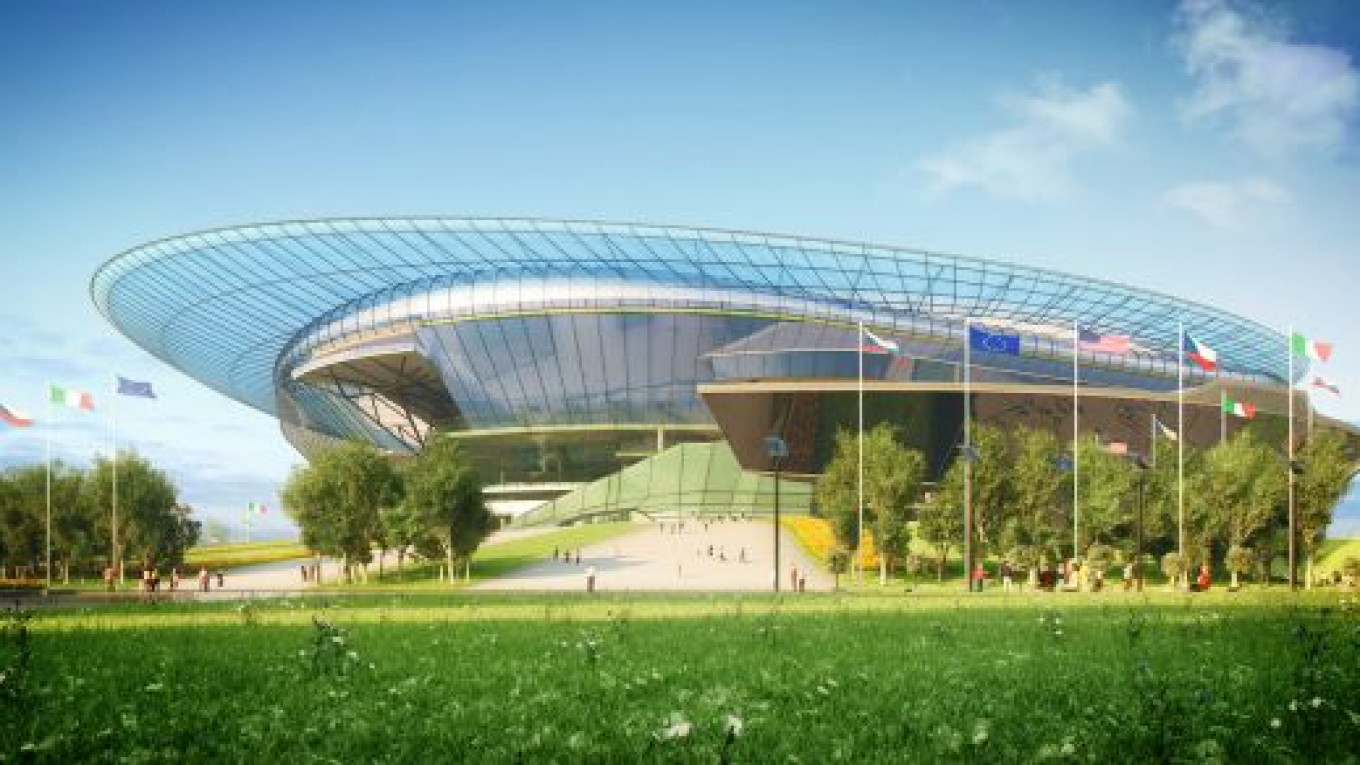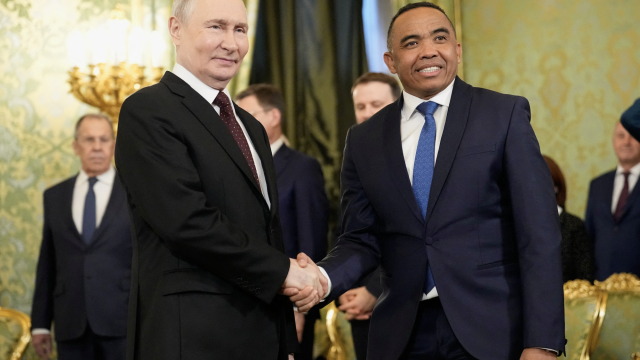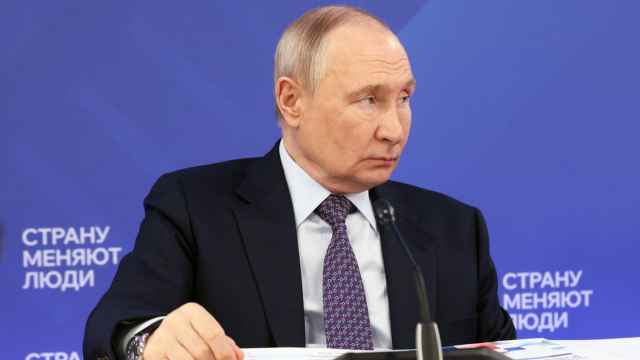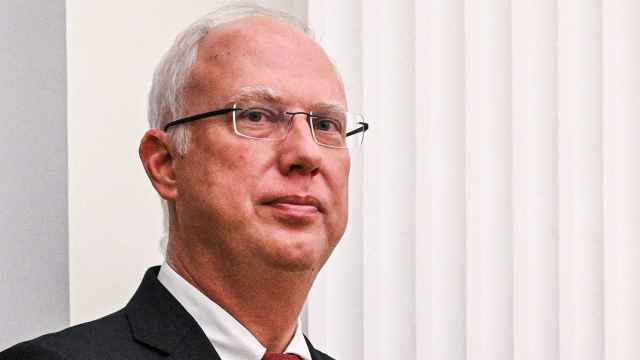Proposed redevelopment of the Luzhniki stadium in preparation for the 2018 FIFA World Cup will result in the loss of a sporting icon and an infrastructure collapse, experts said.
The meeting brought together construction engineers, architects, city heritage observers, municipal bureaucrats and public representatives, who voiced their views regarding a proposed future for the Luzhniki stadium, which already boasts a five-star UEFA rating.
The development plan, recently approved by the Moscow construction and investment authority, or Moskomstroiinvest, suggests that the stadium’s size will increase from the current 134,000 to 221,000 square meters — a project requiring complete reconstruction of the iconic arena, which symbolizes Soviet and Russian sporting achievements.
A new law signed by Putin gives Russian authorities extensive eminent domain powers to seize land for the 2018 FIFA World Cup.
The new plan envisages a number of new buildings, including a soccer hall (15,000 square meters), two international broadcasting centers (44,000 and 16,000 square meters), a hotel (55,7000 square meters), an office building (48,000 square meters), a shopping mall (85,000 square meters) and an international martial arts center (45,000 square meters).
At an April public hearing for the project, the capital’s head architect, Sergei Kuznetsov, and City Hall representatives reassured concerned citizens that the general look of the stadium would be preserved and the area around it would remain environmentally friendly and convenient for transport.
However, residents of Khamovniki — the area where Luzhniki is located — and experts who were present at the press conference were concerned that this might not be the case.
“For four hours they were telling us [at the public hearing meeting] that the stadium facade will be preserved. Then, we find these pictures on the Internet … When we studied the proposal, we discovered a strange situation: There will be many facilities that have nothing to do with the World Cup or even sports as such,” Alexandra Parushina, a deputy of the Khamovniki district municipal council, said Friday.
“What’s more,” Parushina continued, “Article 30 of the new law on preparation for the World Cup, which has been signed by President Vladimir Putin, allows authorities to confiscate [residential] land, within a 30-day period, without restriction, on the territory of the Russian Federation, for the needs of infrastructure construction required for the World Cup.”
She voiced concerns that residents around the stadium may be displaced if the authorities decide to seize their land.
Alexei Denisov, an architect who was involved in the reconstruction of the Christ the Savior Cathedral in Moscow, suggested that the proposed Luzhniki development plan may result in an infrastructure collapse.
“If the burden on infrastructure continues to grow, chances are the whole infrastructure system will not cope and cease to exist,” he added, referring to the recent metro fire which resulted in mass passenger evacuation during the morning peak hour traffic.
Mikhail Farfel, leading researcher from the Central Scientific and Research Institute of Building Structures, said it would take about two years to demolish the stadium before the developer could start building a new one. The new stadium’s construction might not be completed by 2018, he said.
“The government will need to decide,” he said. “The stadium is a symbol of Moscow that needs to be preserved, he added.
Contact the author at [email protected]
Related articles:
A Message from The Moscow Times:
Dear readers,
We are facing unprecedented challenges. Russia's Prosecutor General's Office has designated The Moscow Times as an "undesirable" organization, criminalizing our work and putting our staff at risk of prosecution. This follows our earlier unjust labeling as a "foreign agent."
These actions are direct attempts to silence independent journalism in Russia. The authorities claim our work "discredits the decisions of the Russian leadership." We see things differently: we strive to provide accurate, unbiased reporting on Russia.
We, the journalists of The Moscow Times, refuse to be silenced. But to continue our work, we need your help.
Your support, no matter how small, makes a world of difference. If you can, please support us monthly starting from just $2. It's quick to set up, and every contribution makes a significant impact.
By supporting The Moscow Times, you're defending open, independent journalism in the face of repression. Thank you for standing with us.
Remind me later.






